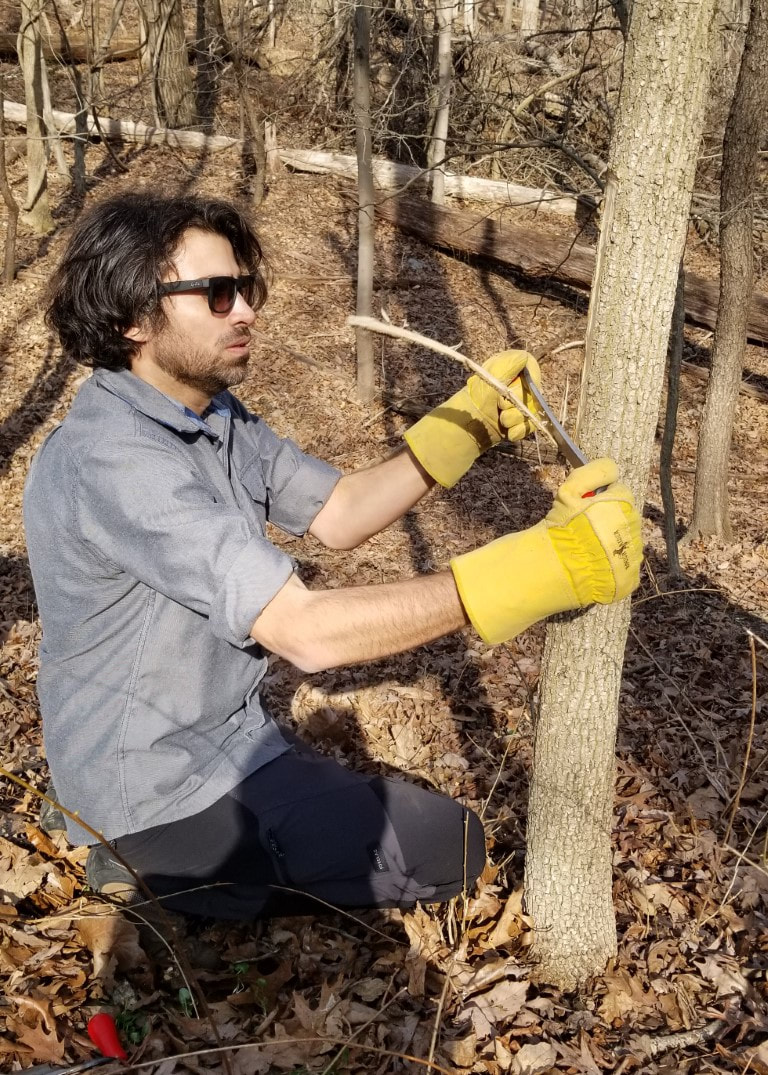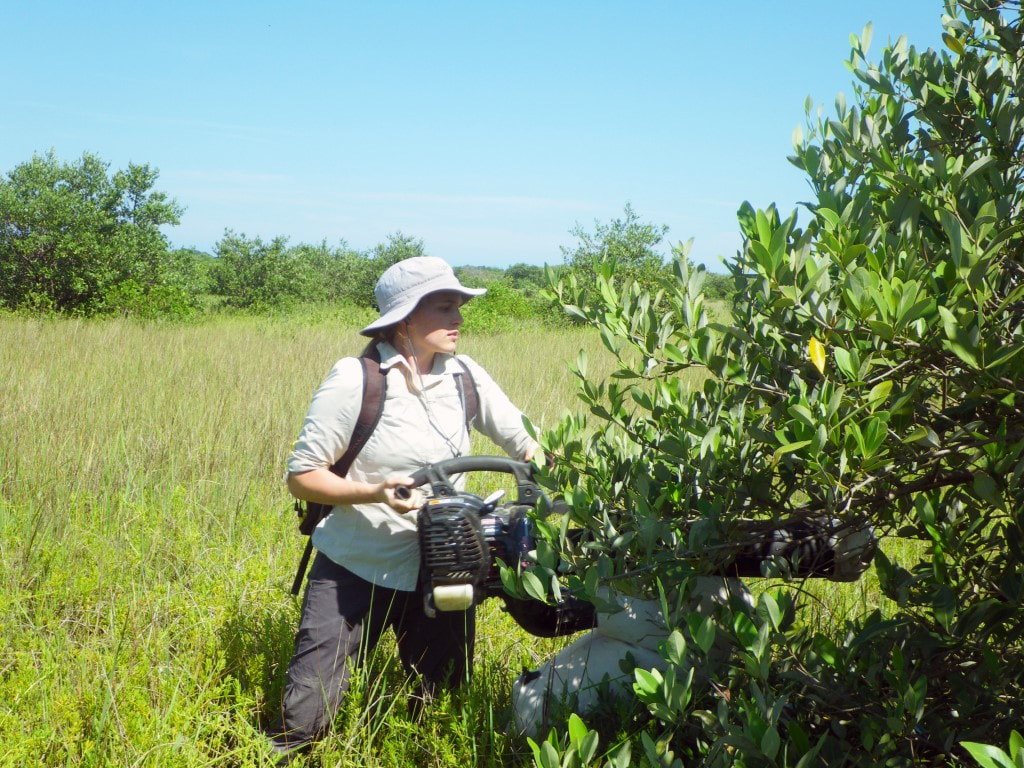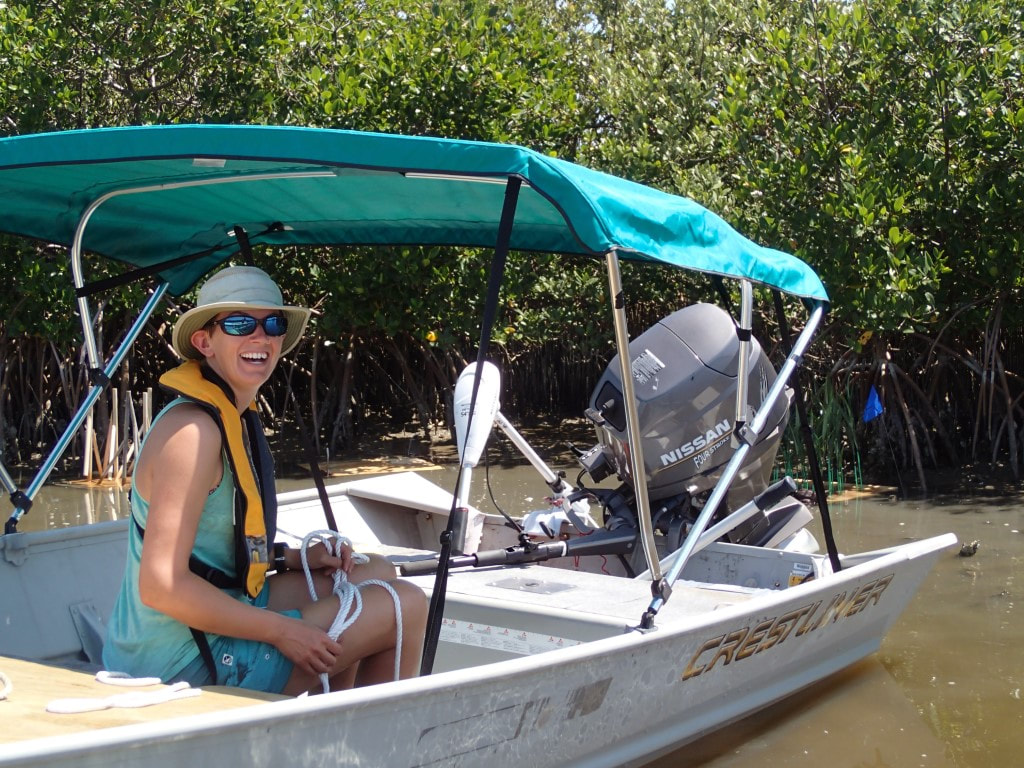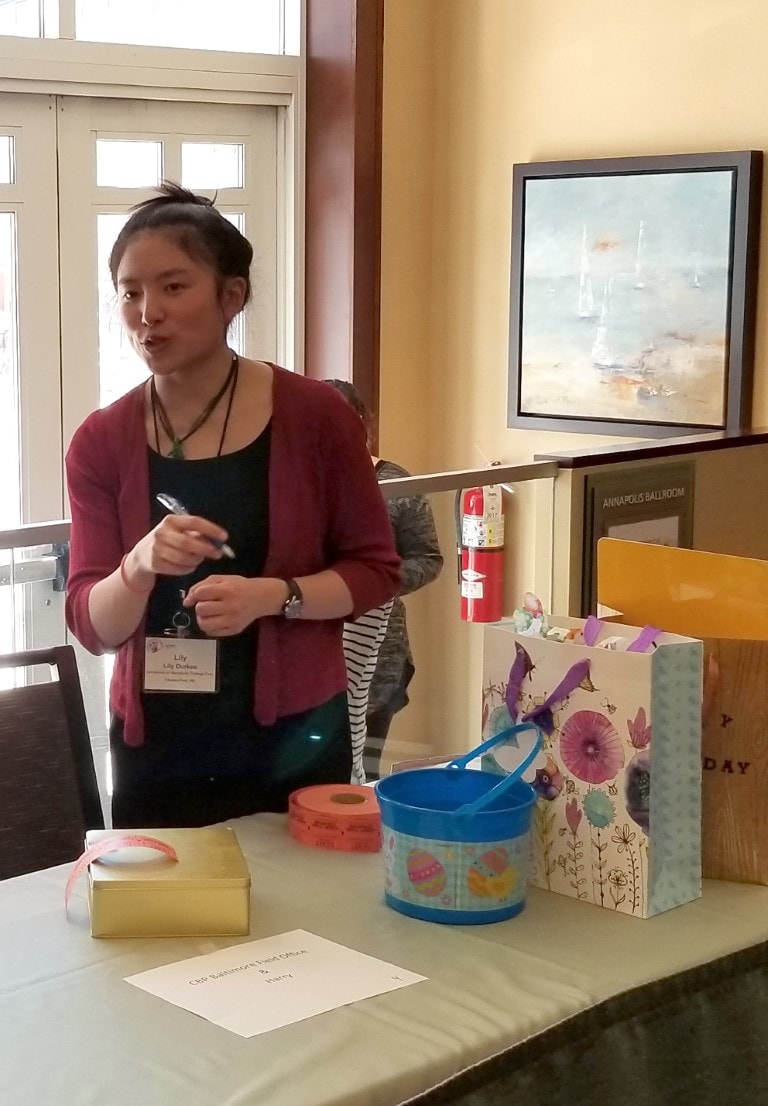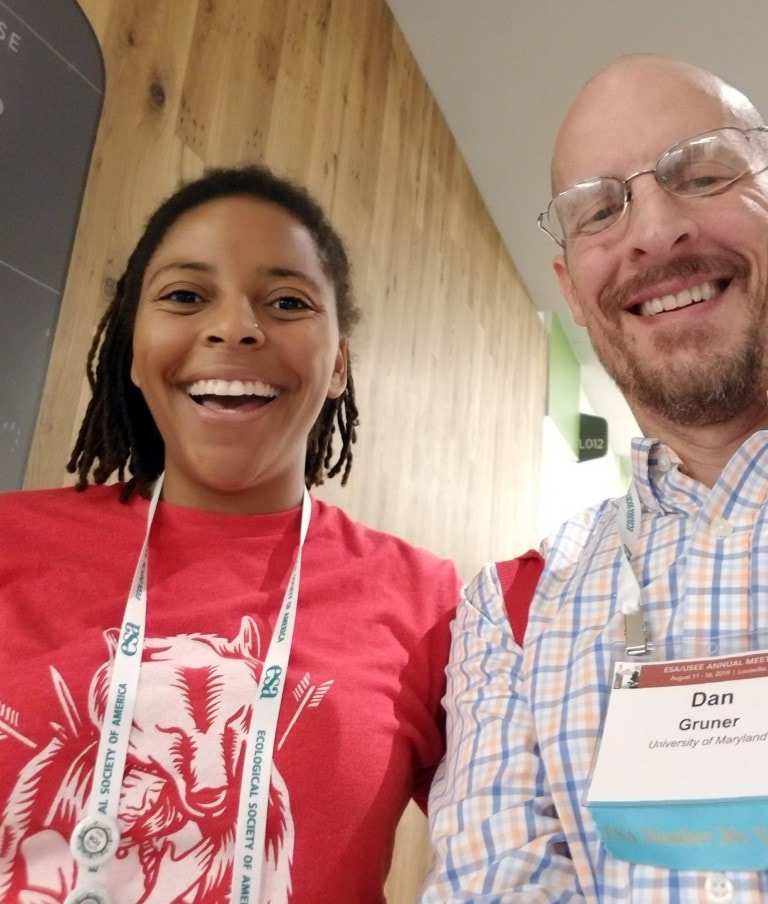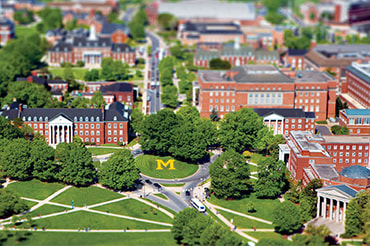Information about joining our Insect Ecology lab
|
Thank you for exploring our lab group and the University of Maryland. In our laboratory, PI Daniel Gruner and all members of the lab strive to be anti-racist, with a work environment welcoming and inclusive for everyone. We are committed to a harassment- and discrimination-free experience. We subscribe to the Department of Entomology Code of Conduct.
If after reviewing our website, we are a good fit for your interests, please contact us with information about yourself and your goals and interests, including your CV and a brief sketch of your potential ideas for research. |
Postdoctoral Scholars and Technical Staff
I also welcome opportunities to work with postdoctoral candidates to develop fellowship applications with NSF, USDA, or other sponsors; or full proposals to these or other agencies. I remember my postdoctoral years as the critical inflection point in my research, and the Washington DC area is a fantastic location to grow your professional networks at this career stage.
Graduate Students
You can join the lab through one of two graduate programs, depending on your interests: Entomology (ENTM), or the BEES (Behavior, Ecology, Evolution, and Systematics) specialization within the Biological Sciences (BISI) PhD umbrella program. Entomology offers both a Masters and PhD track, and the department has a long tradition of excellence from basic to applied entomology. The BISI program was designed to streamline admissions according to conceptual themes and to provide integration across the biological sciences in the College of Computer, Mathematical, and Natural Sciences. Both programs have vibrant, student-run organizations that are involved with all program affairs and are primary instigators of social events. We also have access a deep pool of local intellectual resources and infrastructure, with the multiple campuses of the Smithsonian Institution and the national hub of USDA Agricultural Research Service and the Systematic Entomology Lab located nearby.
In our graduate programs, applications are evaluated by a committee and students are offered admission based on our ability to guarantee financial support – no less than 3 years for an MS student and 5 years for a PhD. This support package may consist of a mix of Teaching Assistantships (TAs), Research Assistantships (RAs) on grant support, and/or competitive national, campus-level, or program-level Fellowships. Although I perpetually work to secure funding, prospective and current students should seek outside fellowships (e.g., NSF GRFP, USDA, Ford Foundation) and other independent funding to support their research projects. This is essential training for a career in science, and the process affords students greater autonomy and agency. Financial support is the ultimate limiting factor in admissions, and there are always many more qualified students than can be supported by our research grants or by the graduate programs. If you are interested in applying for the NSF GRFP, please do contact me early - i.e. 3+ months in advance of the October deadline.
There are many resources available as you research this important decision in your career, but I recommend advice from those with great wisdom – your colleagues: a survey of ecology graduate students. Several recent publications in the Bulletin of the Ecological Society of America (here and here) also provide excellent advice for finding and selecting the best program for you, and this classic blog post from Dr. Jacquelyn Gill will help you to 'nail' your initial contact inquiries.
Working with graduate students over the years, we have developed a document outlining our mutual expectations. This is a living document that welcomes student input and can be updated over time. You can also reach out to the Entomology Student Organization - a really tight knit group!
Finally, you may be eligible for a waiver for the graduation application fee - review eligibility here.
In our graduate programs, applications are evaluated by a committee and students are offered admission based on our ability to guarantee financial support – no less than 3 years for an MS student and 5 years for a PhD. This support package may consist of a mix of Teaching Assistantships (TAs), Research Assistantships (RAs) on grant support, and/or competitive national, campus-level, or program-level Fellowships. Although I perpetually work to secure funding, prospective and current students should seek outside fellowships (e.g., NSF GRFP, USDA, Ford Foundation) and other independent funding to support their research projects. This is essential training for a career in science, and the process affords students greater autonomy and agency. Financial support is the ultimate limiting factor in admissions, and there are always many more qualified students than can be supported by our research grants or by the graduate programs. If you are interested in applying for the NSF GRFP, please do contact me early - i.e. 3+ months in advance of the October deadline.
There are many resources available as you research this important decision in your career, but I recommend advice from those with great wisdom – your colleagues: a survey of ecology graduate students. Several recent publications in the Bulletin of the Ecological Society of America (here and here) also provide excellent advice for finding and selecting the best program for you, and this classic blog post from Dr. Jacquelyn Gill will help you to 'nail' your initial contact inquiries.
Working with graduate students over the years, we have developed a document outlining our mutual expectations. This is a living document that welcomes student input and can be updated over time. You can also reach out to the Entomology Student Organization - a really tight knit group!
Finally, you may be eligible for a waiver for the graduation application fee - review eligibility here.
Undergraduate Students
My first opportunities in ecological research came while I was an undergraduate chasing butterflies, identifying plants, and banding seabirds. We seek motivated undergraduate students on a rolling basis who want research experience in the lab, field, or in analyzing data and writing R code. Undergraduates can earn research credits (BSCI 389) towards a degree, or work towards an Honor’s thesis in Entomology, and/or just earn a paycheck (check for listings on the Maryland Center for Undergraduate Research site). Students with a dedicated interest in entomology can earn a Cory Scholarship and/or work towards a Minor in Entomology. Especially if you hope to earn course credit, the best time to reach out with your interest is before the semester begins.
Campus Resources
